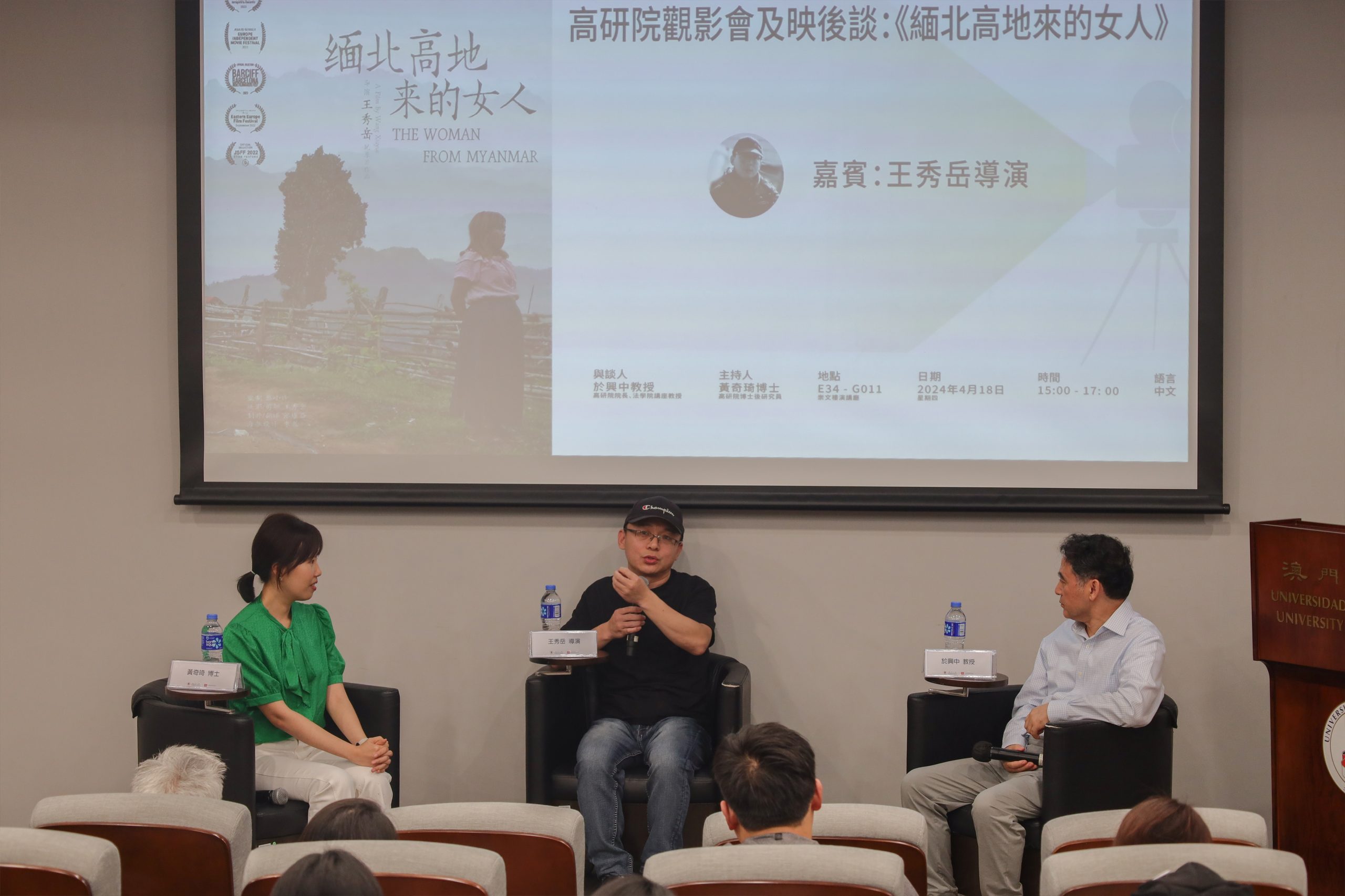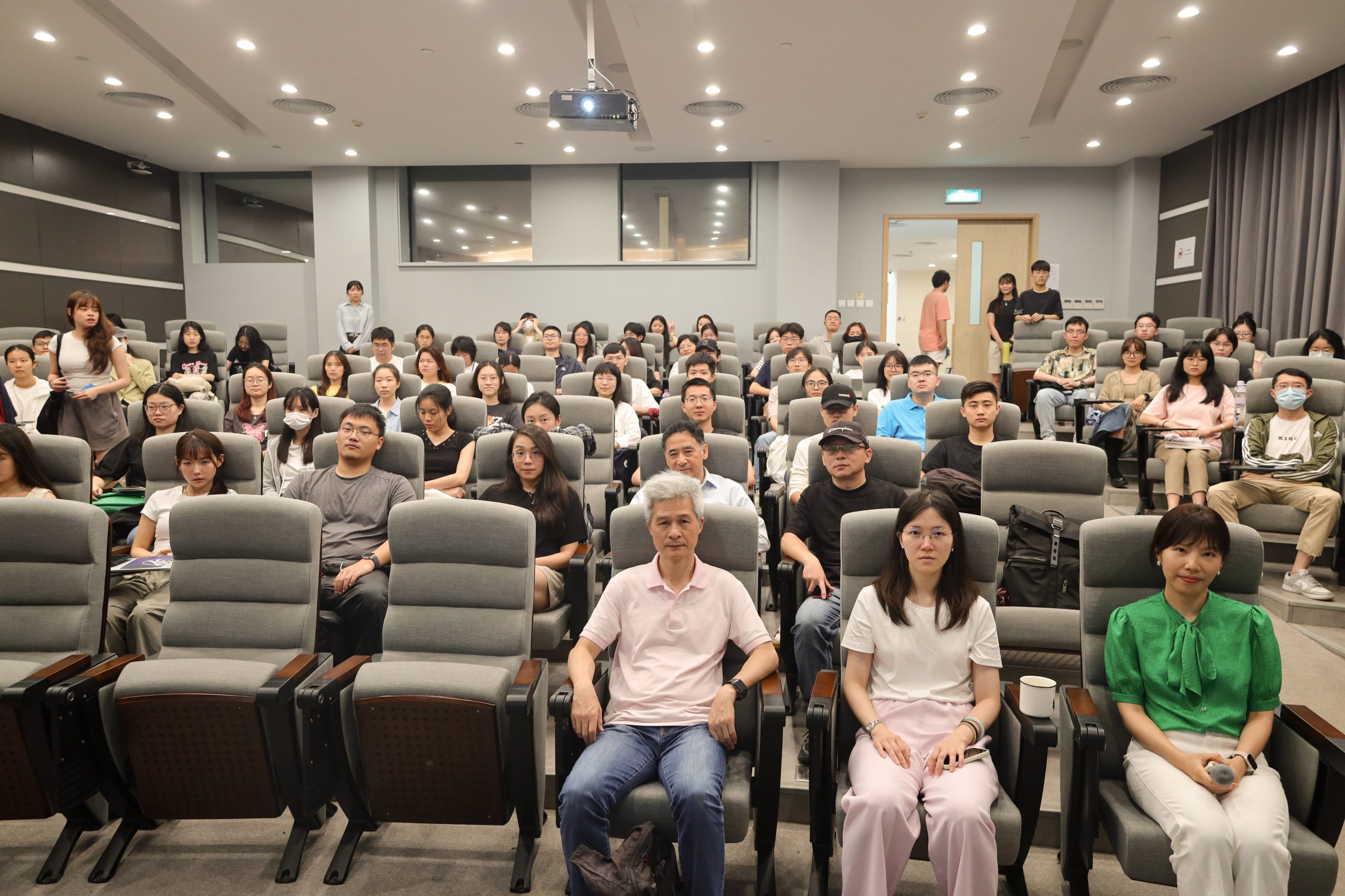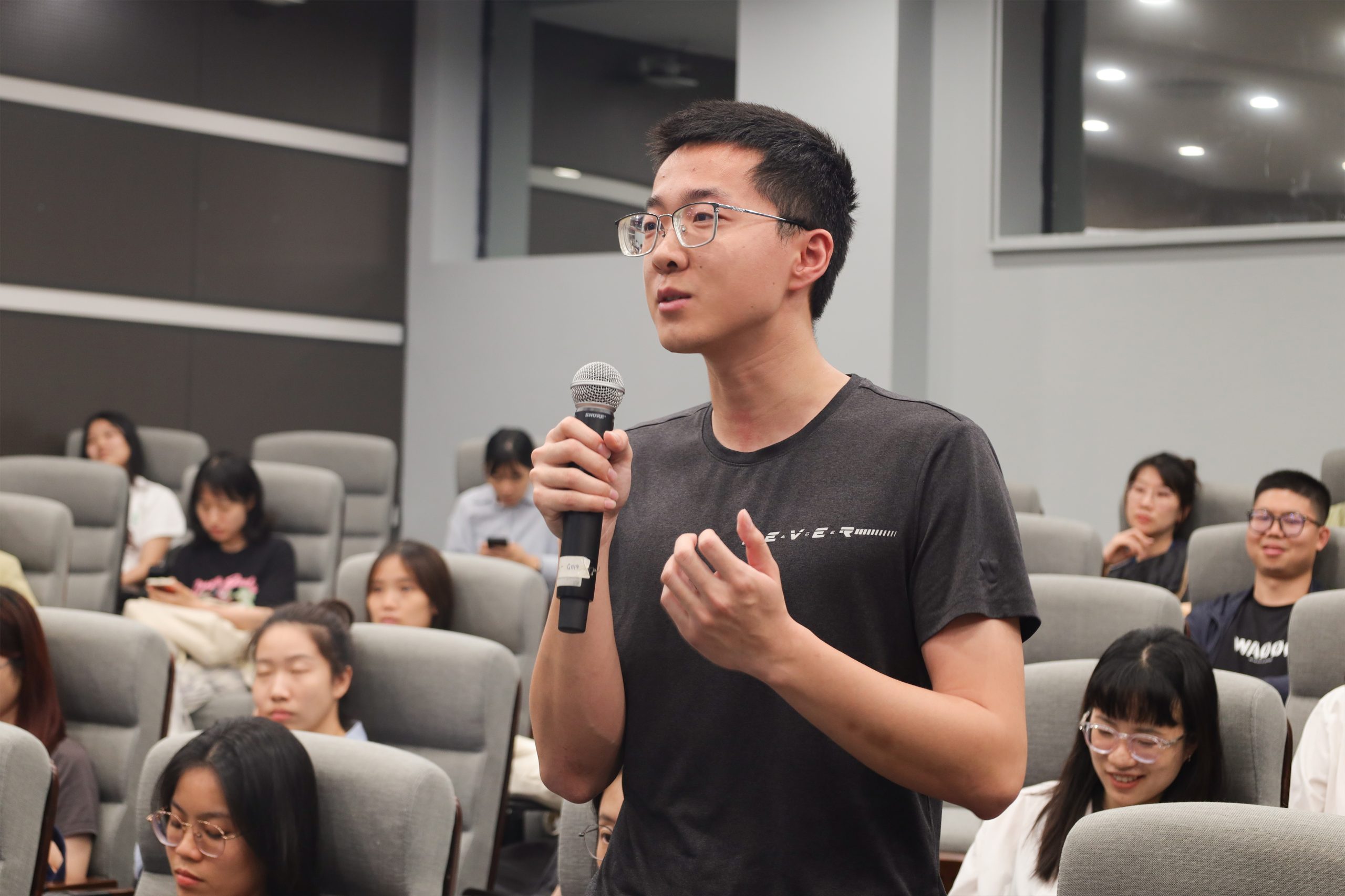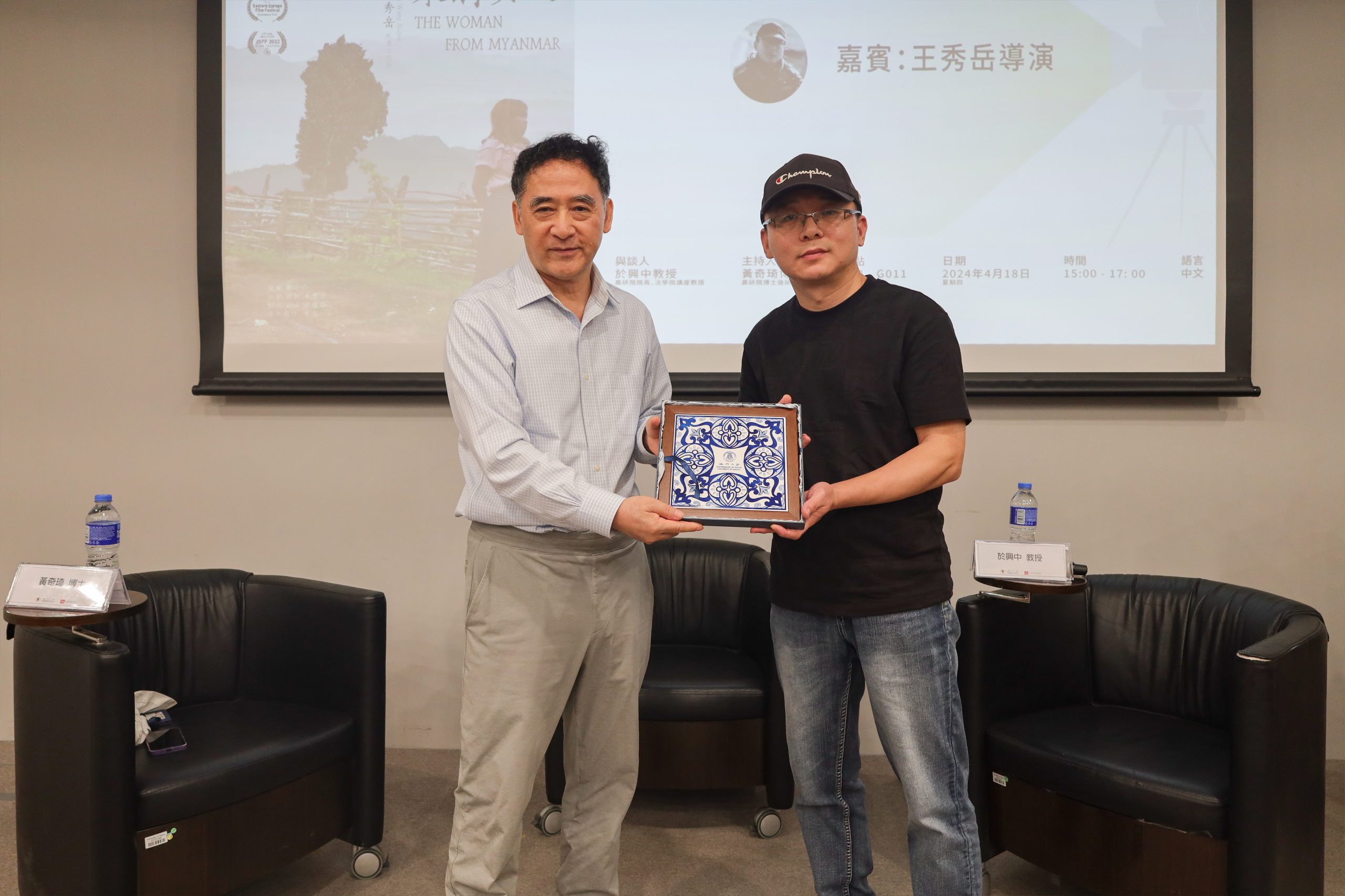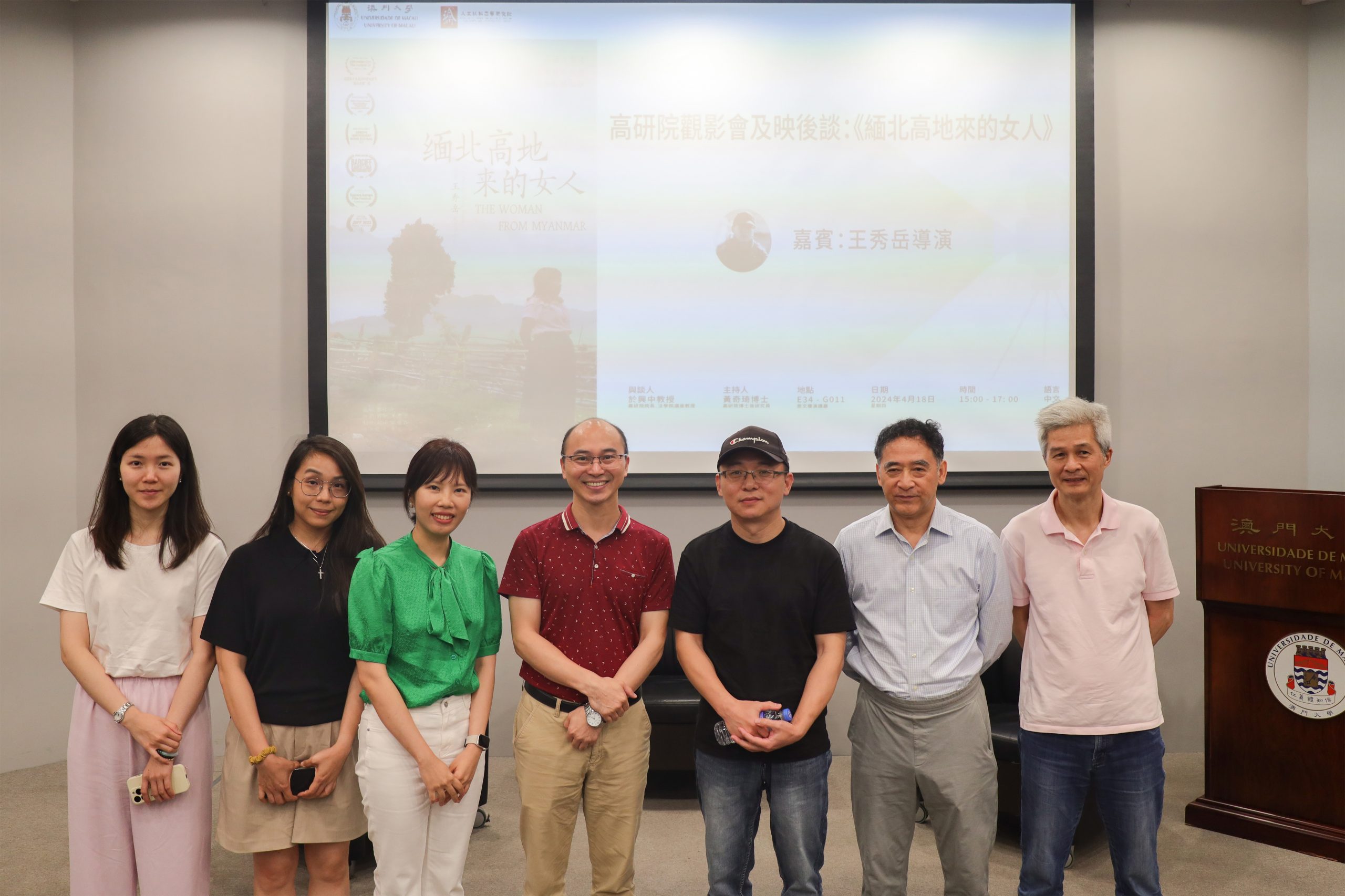【IAS】IAS Movie Showcase and Discussion: “The Woman from Myanmar” was successfully held
【高研院】高研院觀影會及映後談:《緬北高地來的女人》成功舉行

由高研院主辦的“觀影會及映後談:《緬北高地來的女人》”,於4月18日在崇文樓演講廳成功舉行。本次映後談邀請到王秀岳導演分享拍攝背後的故事,由高研院院長、法學院講座教授——於興中教授擔任與談人,高研院博士後研究員——黃奇琦博士擔任主持人,深入探討這部電影的意義。
電影《緬北高地來的女人》榮獲2022年印度影展最佳導演獎、歐洲獨立影展最佳紀錄長片、東歐獨立影展最佳紀錄片榮譽提及等多個獎項。上世紀九十年代後,來自緬甸、越南、柬埔寨等東南亞國家的外來新娘經人介紹或被誘騙至中國內地,淪為生育工具。在機緣巧合下,王秀岳認識了山東外籍新娘拉瑞。她生於缅北,為改善家庭經濟條件,被姨媽賣給一個老男人,過了十幾年,生了一雙兒女。期間,拉瑞曾被再次騙婚而離家出走,和另一個年輕男性結婚生子。影片最後,拉瑞回到緬北老家。電影透過拉瑞的生活向觀眾們展示緬北女人因為貧窮沒有任何追求幸福的權力,似乎只能先走出去、活下來,然後才能追求人生的幸福和美好。
觀影結束後,於興中教授認為,該影片通過記錄這個特殊的家庭以及婚姻瑣碎的內容,體現基層民生的艱辛,也反映了隨時代變化,人們追求夢想的方式。被問及拍攝這部電影所想表達的主題時,王秀岳導演承認,開始只是被拉瑞離家出走的事件吸引,並未做任何預設。直到拉瑞歸家,他才決定要通過一個女人的形象去展示外籍新娘的生活。黃奇琦博士也認同,創作往往在回首時會有新的發現。
在問答環節,觀者普遍好奇背後的拍攝難度。王秀岳導演坦然,他懷著交友的態度,又恰好能滿足被攝者需求,比如答應海江幫他尋妻、照料孩子,陪伴孤獨的拉瑞等。王秀岳導演真誠而風趣地講述了他在拍攝時艱苦的物質條件、不為人知的交通方式和巨大的心理與社會壓力。黃奇琦博士贊同到,這比社會學中做田野調查訪談更為艱辛。
放映會的最後,同學提出昇華一問,問及如何看待這類事件的社會關注度。王秀岳導演會心一笑,他很欣慰能通過拍攝一個個體,而讓大眾關注到一群人的生活狀態,也許能達到改善這群人的生活的目的。
是次活動吸引了近百位師生的現場參與。觀影後,同學真誠發問,導演與教授談笑風生,觀影及映後談帶給全體師生以極大的震撼與深入的思考。
The IAS Movie Showcase and Discussion: “The Woman from Myanmar,” hosted by IAS, was successfully held on 18th April in the Lecture Hall, Cultural Building. Mr. Xiuyue WANG, director of the film was invited to share the stories behind the screen, Professor Xingzhong YU, the director of IAS, Chair Professor of FLL served as the discussant; Dr. Qiqi HUANG, postdoctoral fellow of IAS, served as the moderator.
The movie “The Woman from Myanmar” is the winner of the award of Best Director at the Indian Film Festival 2022, the award of Best Documentary at the European Independent Film Festival, the Honorable Mention of Best Documentary at the Eastern European Independent Film Festival and many other awards. After the 1990s, foreign brides from Myanmar, Vietnam, Cambodia, and other Southeast Asian countries were brought or enticed to mainland China and treated as tools for bearing children. By coincidence, Xiuyue WANG met Larry, a foreign bride who married off to Shandong. Born in northern Myanmar, her aunt sold her to an older man to get money and improve her family’s financial situation, and in these more than 10 years of “marriage”, she gave birth to a pair of children. During this period, Larry escaped from home for once but was tricked into marrying again to another man. By the end of the documentary, Larry had to return to her hometown in Myanmar.
At the discussion, Professor Yu mentioned that this documentary captures the challenges of everyday life for ordinary families, showcasing how people’s aspirations evolve over time. When asked about the documentary’s underlying message, Mr. Wang revealed that he was initially captivated by Larry’s escape from home. However, it was upon Larry’s return that he recognized the importance of portraying the experiences of a woman as a foreign bride. Dr. Huang concurred, noting that creators often gain valuable insights in retrospect.
During the Q&A session, the audience displayed a strong interest in the difficulties of filming behind the scenes. Mr. Wang mentioned that he took a friendly approach, helping Hai Jiang find his wife, taking care of his children, and keeping lonely Larry company. He candidly discussed the challenges of dealing with poor material conditions, unfamiliar transportation, and the considerable psychological and social pressure he faced during filming. Dr. Huang concurred that this task was more demanding than conducting sociological fieldwork interviews.
At the event’s conclusion, a student asked a thoughtful question about how to approach the social issue highlighted by these incidents. Mr. Wang smiled warmly and shared his contentment in raising public awareness about the living conditions of a particular group by featuring an individual in the film, aiming to improve their lives.
The event drew nearly 100 teachers and students. The movie and discussion sparked lively debates and deep reflection among all attendees.

